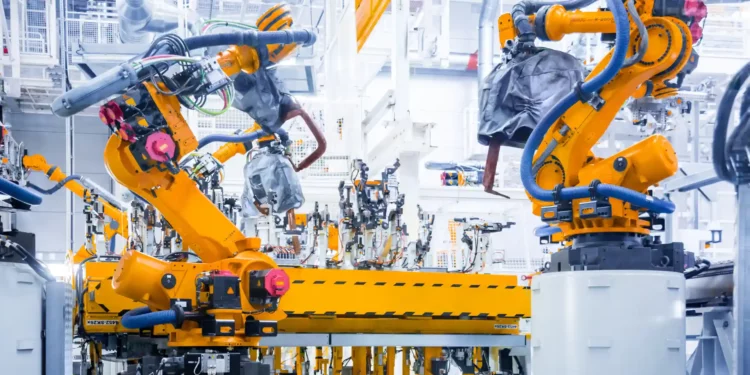Even though European businesses are looking for alternate suppliers in nations like Vietnam, Bangladesh, and India, these choices sometimes have higher prices and longer lead times.
European businesses are working harder to reduce their dependence on Chinese products. Some are even considering moving at least thirty percent of their manufacturing outside of China, and some are even considering leaving the nation entirely.
Furthermore, the reasons go beyond persistent concerns about supply chain vulnerabilities. It is also a result of the European Commission rigorously examining goods imported into the continent from China.
Brussels, for example, has opened an investigation into Chinese government industrial subsidies out of concern that overcapacity and flooding of low-cost goods entering Europe would undermine EU competitiveness.
The impact on international trade flows may not be significant despite China‘s subsequent push to “de-risk.” Although it is a famous narrative, decoupling from the biggest export economy in the world is not entirely desired or realistic.
Even though European businesses are looking for alternate suppliers in nations like Vietnam, Bangladesh, and India, these choices sometimes have higher prices and longer lead times. In reality, Chinese manufacturing is still quite competitive, and its dominance in international trade is well-established.
For instance, according to the analysis released by the Brookings Institution, a US think tank, China’s reliance on G7 imports is even lower, even if the G7 only gets 4–5% of their industrial inputs from China. Given this disparity, the G7 is likely to be more negatively impacted by any industrial disruptions brought on by decoupling than China.
To break these strong ties is expensive, and long-term industrial and trade policies will be needed, similar to what the US, Europe, and Japan are undertaking in the semiconductor industry.
Building these businesses, however, requires years of consistent work and political support, which can be challenging to sustain in democratic economies where power alternates between political parties. The real issue is that these policies are costly now, and there may be no guarantee that they will provide the desired results.
As such, the extent of China’s decoupling will likely stay restricted.
The economic reasoning behind this is straightforward: manufacturing gains from economies of scale when industries cluster together. Companies assemble in specific regions to save costs and improve quality; this gives them a competitive edge and draws in additional businesses.
These natural forces of clustering and productivity growth solidified China’s dominance once it had established itself by the early 2000s. According to the OECD, China accounts for almost a third of global manufacturing. Although it would be feasible to compete with China in niche markets like semiconductors, medical devices, and electric cars, it seems improbable to challenge its dominance in a broad range of industries.
Addressing China’s dominance over global supply chains is challenging for the G7 countries, but emerging economies confront an even more difficult situation.
While US President Joe Biden’s Inflation Reduction Act and the Chips and Science Act, which together gave out about $400 billion in grants, loans, and tax credits to companies investing in US manufacturing, may be able to help the G7 countries lessen or reverse their reliance on China in some industries.
They see China’s dominance in international trade as an unavoidable fact. When it comes to keeping up with the rapid growth and development of the industrial sector, only two categories of rising economies stand a genuine chance.
First, nations like India, which have sizable domestic markets and a population of over 1.4 billion people, can be used to create industrial hubs. Economies in the second category, such as those in South Korea and Vietnam, are geographically adjacent to China and can thus integrate as buyers and sellers into Chinese supply chains.
The US’s reliance on China is far more than meets the eye when one looks at its direct suppliers and a whole network of indirect connections. The US buys significant goods directly from China and imports many goods from other nations, including Canada and Mexico, which contain Chinese components buried farther up the supply chain.
China’s power endures because even if businesses move their supply chains to nations like Vietnam or India, those countries frequently still rely on Chinese inputs.
Removing all ties with China would mean drastic adjustments to entire industries, and the reality is that is highly unlikely. At the moment, American and European businesses will keep looking for methods to “de-risk,” but China will always have a dominant position in global supply chains.
















